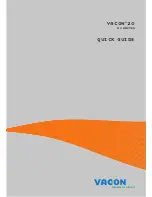
18
Installing the water heater
Additional Considerations
DO NOT
install vent terminal under any patio or deck.
To help prevent moisture from freezing on walls and under
eaves, do not locate vent terminal on the side of a build ing
with prevailing winter winds.
When terminating the vent pipe through brick or masonry
surfaces, a rust-resistant sheet metal backing plate behind the
vent termination is recommended. (See illustration.)
DO NOT
locate vent terminal too close to shrubbery, as flue
gasses may damage them.
Caulk all cracks, seams and joints within six (6) feet
(1.83 m) of vent terminal.
All painted surfaces should be primed to lessen the chance of
physical damage. Painted surfaces will require maintenance.
Insulate vent pipe exposed to cold conditions (attics, crawl
spaces, etc.) with inflammable material to help prevent
moisture from accumulating in vent pipe.
DO NOT
extend exposed vent pipe outside of building.
If other vent terminal configurations are required, See "If
You Need Service" section.
If soffit vent is too
close, block off and
install new vent at
another location
Inside
corner
Caulk
Caulk
Caulk
6' (1.83 m)
caulk
zone or to edge of
window etc., starting
within 6'
Rising moisture will
collect under eaves
4'
6' caulk zone
2 ft. sq. sheet metal plate on
brick or masonary surface is recomended.
6'
WARNING
:
Moisture in the flue gas will condense as it
leaves the vent terminal. In cold weather this condensate can
freeze on the exterior wall, under the eaves and on
surrounding objects. Some discoloration to the exterior of
the building is to be expected. However, improper location
or installation can result in severe damage to the structure
or exterior finish of the building.
Summary of Contents for PowerVent Series
Page 42: ...42 Notes...
Page 43: ...43 Notes...
















































